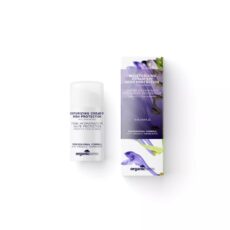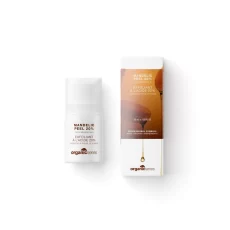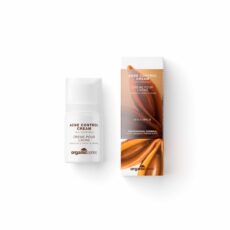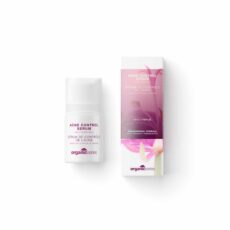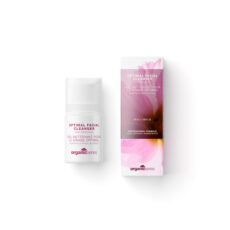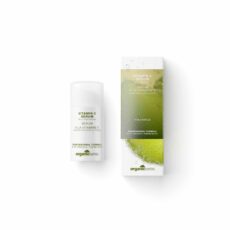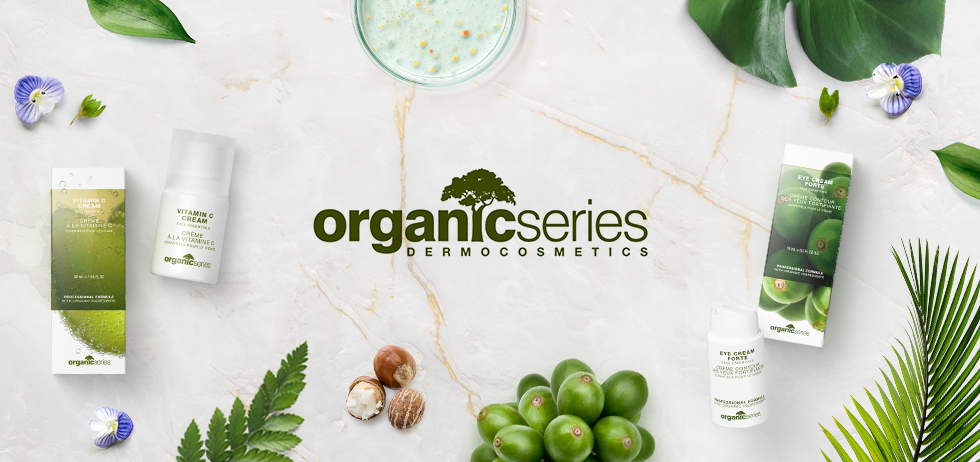Acne Control Skincare Introduction
Acne control: Acne is a common skin concern that can affect individuals of all ages, causing frustration and a dent in one’s self-esteem. The battle against acne can indeed be a challenging one, but armed with the right knowledge and skincare regimen, you can effectively manage and control it. In this comprehensive guide, we will delve deep into 15 of the most effective acne control skincare tips and tricks. From daily routines to specialized treatments, we’ve got you covered.
1. Understanding Acne Control
Before we explore these invaluable acne control tips and tricks, it’s essential to establish a solid foundation of understanding about acne. Acne is a skin condition that occurs when hair follicles become clogged with oil and dead skin cells. This process leads to the formation of various types of blemishes, including pimples, blackheads, and whiteheads. To effectively control acne, a multi-pronged approach is vital.
Acne has several contributing factors, including genetics, hormonal fluctuations, and lifestyle choices. It’s essential to recognize that each person’s experience with acne is unique, and what works for one may not work for another.
It’s worth noting that acne can take different forms, including non-inflammatory (blackheads and whiteheads) and inflammatory (pimples, pustules, and cysts). Understanding the type of acne you’re dealing with can help tailor your treatment approach.
Additionally, the location of acne on your face can provide insights into its potential causes. For example, acne on the chin and jawline may be hormone-related, while forehead acne could be linked to hair products or hats.
In cases where acne persists despite your best efforts, it’s advisable to consult a dermatologist. Dermatologists can perform a thorough assessment of your skin and recommend specialized treatments, such as prescription medications or procedures.
2. Gentle Cleansing
Kickstart your acne control skincare routine with a gentle cleanser. Aggressive cleansers can strip your skin of its natural oils, prompting the overproduction of sebum (skin oil), which can exacerbate breakouts. Opt for a pH-balanced, fragrance-free cleanser and make it a habit to cleanse your face twice daily.
Cleansing is a critical step in any skincare routine, but it’s particularly crucial when dealing with acne. It helps remove dirt, excess oil, and impurities from the surface of your skin, reducing the risk of pore blockage.
When choosing a cleanser, look for ingredients like salicylic acid or benzoyl peroxide, which can help target acne-causing bacteria and prevent new breakouts.
Remember that over-cleansing your face can lead to dryness and irritation. Stick to cleansing in the morning and evening, and always follow up with a moisturizer to maintain the skin’s natural barrier.
3. Regular Exfoliation
Exfoliation plays a pivotal role in acne control. It helps remove dead skin cells that can clog pores and lead to breakouts. Consider incorporating a salicylic acid or glycolic acid exfoliant into your routine, but remember not to overdo it, as excessive exfoliation can irritate your skin.
Exfoliation can be divided into two categories: physical and chemical. Physical exfoliation involves using scrubbing particles or tools to physically remove dead skin cells. However, this method can be harsh on the skin, potentially causing micro-tears. Chemical exfoliation, on the other hand, uses acids to dissolve dead skin cells gently.
Salicylic acid is a beta-hydroxy acid (BHA) known for its ability to penetrate oily pores and exfoliate from within. It can help reduce inflammation and unclog pores, making it an excellent choice for those with acne-prone skin.
Glycolic acid, an alpha-hydroxy acid (AHA), is effective at exfoliating the skin’s surface. It can improve the overall texture and tone of your skin, helping to fade post-acne marks.
Start with exfoliating once or twice a week and gradually increase the frequency as your skin builds tolerance. Always follow the instructions on the product you’re using, as some exfoliants are designed for daily use.
4. Hydration is Key
Proper hydration is essential for maintaining healthy skin. Drinking an adequate amount of water helps flush toxins from your body, promoting clearer skin. Aim for at least eight glasses of water daily and consider using a lightweight, oil-free moisturizer to keep your skin well-hydrated.
Many people with acne-prone skin are hesitant to use moisturizers, fearing they may make their skin oilier. However, it’s a misconception that moisturizers should be avoided. In fact, a good moisturizer can help balance the skin’s moisture levels, preventing it from producing excess oil.
Look for moisturizers labeled as “non-comedogenic” or “oil-free.” These are formulated to hydrate the skin without clogging pores.
If you have combination skin, where some areas are oily, and others are dry, you can use different moisturizers on different parts of your face to address specific needs.
It’s important to note that dehydration can sometimes mimic the symptoms of excess oil production, leading to a mistaken belief that the skin is too oily. Ensuring your skin is adequately hydrated can help improve its overall condition.
5. Opt for Non-Comedogenic Acne Control Products
When selecting acne control skincare and makeup products, always look for the term “non-comedogenic.” These products are less likely to clog your pores, reducing the risk of acne breakouts.
Non-comedogenic products are specially formulated to be less likely to cause pore blockages, making them a safer choice for those prone to acne.
Ingredients to look for in non-comedogenic products include mineral-based sunscreens, hyaluronic acid, and lightweight, oil-free formulations.
Pay attention to the ingredients list on product labels. Avoid products that contain potentially pore-clogging substances such as heavy oils or fragrances.
It’s essential to check the expiration date on skincare products to ensure their efficacy and safety. Expired products can become less effective and may even lead to skin issues.
6. Sun Protection
Shielding your skin from the sun is paramount in acne control. Sun exposure can lead to skin inflammation and post-inflammatory hyperpigmentation. Make it a daily ritual to apply a broad-spectrum sunscreen with an SPF of at least 30, even when the skies are overcast.
Sunscreen is a non-negotiable step in your skincare routine, regardless of your skin type or concerns. It helps protect your skin from the harmful effects of UV radiation, including premature aging and skin cancer.
When selecting a sunscreen, opt for one that is labelled as “broad-spectrum,” as it provides protection against both UVA and UVB rays.
Consider choosing a sunscreen that is specifically formulated for the face, as these tend to be lighter in texture and less likely to clog pores.
Remember that sunscreen should be applied generously and reapplied every two hours when you’re outdoors. If you’re spending extended periods in the sun, consider wearing a wide-brimmed hat and sunglasses for added protection.
7. Balanced Diet
A balanced diet is crucial for overall skin health. Incorporate foods rich in antioxidants, such as fruits and vegetables, into your meals. These foods help combat inflammation and promote clear skin. On the flip side, reduce your consumption of sugary and processed foods, as they can exacerbate acne.
A diet rich in antioxidants can help your skin combat oxidative stress, a factor that can worsen acne and contribute to premature aging.
Some specific nutrients, like vitamin C, vitamin E, and beta-carotene (a precursor to vitamin A), have been shown to have skin-protective properties. Citrus fruits, nuts, and colorful vegetables are excellent sources of these nutrients.
Omega-3 fatty acids, found in fatty fish like salmon and flaxseeds, have anti-inflammatory properties that can help reduce skin redness and irritation.
While there’s no one-size-fits-all diet for acne, some individuals may find that certain dietary triggers exacerbate their breakouts. Common triggers can include dairy products and high-glycemic-index foods. Pay attention to how your skin reacts to different foods, and consider making adjustments based on your observations.
8. Stress Management
Stress can be a major trigger for acne breakouts. It increases the production of stress hormones, which can lead to an increase in sebum production and inflammation. To counteract this, integrate stress-reduction techniques into your daily routine. Yoga, meditation, and deep breathing exercises can have a significant positive impact on your skin.
Chronic stress can wreak havoc on your skin by compromising its barrier function and increasing inflammation. This can lead to more frequent and severe breakouts.
Mindfulness practices, such as meditation and deep breathing exercises, can help calm the mind and reduce stress levels. These techniques can also improve overall well-being, which can reflect positively on your skin.
Physical activity is another effective way to manage stress. Exercise releases endorphins, which are natural mood lifters, and can help reduce stress-related skin issues.
Establishing a consistent sleep routine is vital for managing stress and maintaining skin health. Lack of sleep can exacerbate stress and lead to tired, dull-looking skin.
9. Hands Off Your Face
Your hands are often laden with bacteria, and touching your face can transfer these microbes, potentially leading to acne flare-ups. Make a conscious effort to avoid unnecessary contact with your face, and when you must touch it, ensure your hands are clean.
Touching your face with dirty hands is a surefire way to introduce bacteria and debris into your pores, which can lead to new breakouts or worsen existing ones.
It’s not just your hands you need to be mindful of. Items that frequently come into contact with your face, such as your phone or glasses, should also be cleaned regularly to prevent the transfer of bacteria.
If you have a habit of resting your chin or cheeks on your hands, try to break this habit, as it can contribute to acne along the jawline and cheek areas.
Consider using a clean tissue or cotton pad if you need to touch your face for any reason. This provides a barrier between your hands and your skin.
10. Frequent Bedding and Pillowcase Changes
Dirt, oil, and dead skin cells can accumulate on your bedding and pillowcases. Changing them regularly can help prevent these substances from coming into contact with your face and causing breakouts.
Pillowcases, in particular, can become a breeding ground for acne-causing bacteria and fungi. Sleeping on a clean pillowcase can make a noticeable difference in your skin’s condition.
Aim to change your pillowcases at least once a week, or more frequently if you use skincare products that can transfer onto your bedding.
Consider investing in pillowcase materials that are gentle on the skin, such as silk or satin. These materials can also help reduce friction and minimize the risk of irritation.
If you have body acne concerns, it’s a good idea to change your bedsheets regularly as well, especially if you sleep in direct contact with them.
11. Be Gentle with Your Skin

Avoid vigorous scrubbing, as it can irritate your skin and worsen acne. Instead, pat your face dry with a clean towel after washing, rather than rubbing it.
Harsh scrubbing can damage the skin’s protective barrier, leading to increased sensitivity and redness.
When drying your face, use a soft, clean towel and gently blot the skin to remove excess moisture. Avoid rubbing or pulling on the skin.
Consider using a separate towel for your face to reduce the risk of transferring bacteria from body towels to your facial skin.
If you use skincare products that contain active ingredients like retinoids or exfoliants, it’s essential to follow the recommended application instructions. Overuse or improper application can lead to irritation and worsen acne.
12. Spot Treatments
For individual acne spots, consider using acne control spot treatments containing ingredients like benzoyl peroxide or salicylic acid. These treatments can help reduce the size and redness of pimples.
Spot treatments are formulated to target specific blemishes rather than your entire face, allowing you to address problem areas directly.
Benzoyl peroxide is known for its antibacterial properties, which can help kill acne-causing bacteria within the pimple. It also has a drying effect, which can reduce the size of the blemish.
Salicylic acid, on the other hand, is a beta-hydroxy acid that can exfoliate the inside of pores. It helps unclog the follicles and prevent new blemishes from forming.
Apply acne control spot treatments sparingly and only to the affected areas. Overuse can lead to dryness and peeling, which can be counterproductive.
13. Consult a Dermatologist
If your acne is severe or persistent, don’t hesitate to seek professional help. A dermatologist can provide personalized acne control treatment options, such as prescription medications or in-office procedures.
Dermatologists are medical experts who specialize in diagnosing and treating skin conditions. They have access to a wide range of treatments and interventions that may not be available over the counter.
A dermatologist can perform a thorough examination of your skin, identify the underlying causes of your acne, and recommend tailored treatment options.
Common prescription medications for acne include topical retinoids, which can help unclog pores and reduce inflammation, and oral antibiotics, which can target acne-causing bacteria. Hormonal therapies may also be prescribed for individuals with hormone-related acne.
It’s essential to follow your dermatologist’s recommendations carefully and attend follow-up appointments to monitor your progress.
14. Prescription Medications
Prescription medications, including topical retinoids, oral antibiotics, or hormonal therapies, may be necessary for severe acne control cases. These treatments should only be used under the guidance of a healthcare professional.
Topical retinoids, such as tretinoin and adapalene, are derivatives of vitamin A that help normalize skin cell turnover. They can reduce the formation of comedones (clogged pores) and improve skin texture.
Oral antibiotics are often prescribed for inflammatory acne to target the bacteria responsible for exacerbating breakouts. They can help reduce redness and inflammation.
Hormonal therapies, such as birth control pills or spironolactone, can be effective for individuals with hormonally-driven acne. These treatments work by regulating hormonal fluctuations that contribute to breakouts.
It’s crucial to be patient when using prescription medications for acne, as results may take several weeks to become evident. Additionally, follow your healthcare provider’s instructions and attend regular check-ups to monitor your progress and any potential side effects.
15. Chemical Peels
Chemical peels can be a valuable addition to your acne control regimen. They help exfoliate the outer layer of the skin, reducing the appearance of acne scars and promoting a smoother complexion. Consult a dermatologist to determine the most suitable peel for your skin type.
Chemical peels involve the application of a chemical solution to the skin, which causes the top layer to peel off. This process stimulates the growth of new, healthier skin cells.
Peels can vary in intensity, from mild to deep. The choice of peel depends on your specific skin concerns and the results you wish to achieve.
Lighter peels, such as glycolic acid peels, can provide subtle improvements in skin texture and tone with minimal downtime. Deeper peels, like TCA (trichloroacetic acid) peels, may be recommended for more significant issues, including severe acne scarring.
After a chemical peel, it’s essential to follow post-treatment instructions carefully. Your skin will be more sensitive, and sun protection is crucial to prevent damage.
Conclusion
In conclusion, acne control is an ongoing journey that demands dedication and the right skincare regimen. By incorporating these 17 best acne control skincare tips and tricks into your daily routine, you can make substantial progress toward achieving the clear, radiant skin you’ve been striving for. Always remember to be gentle with your skin, seek professional guidance when necessary, and remain committed to your path to acne-free skin.
With determination and a well-rounded approach to acne control skincare, you can conquer acne and reveal the clear, confident you!
Expert recommendation
Organic Series Acne Control Serum
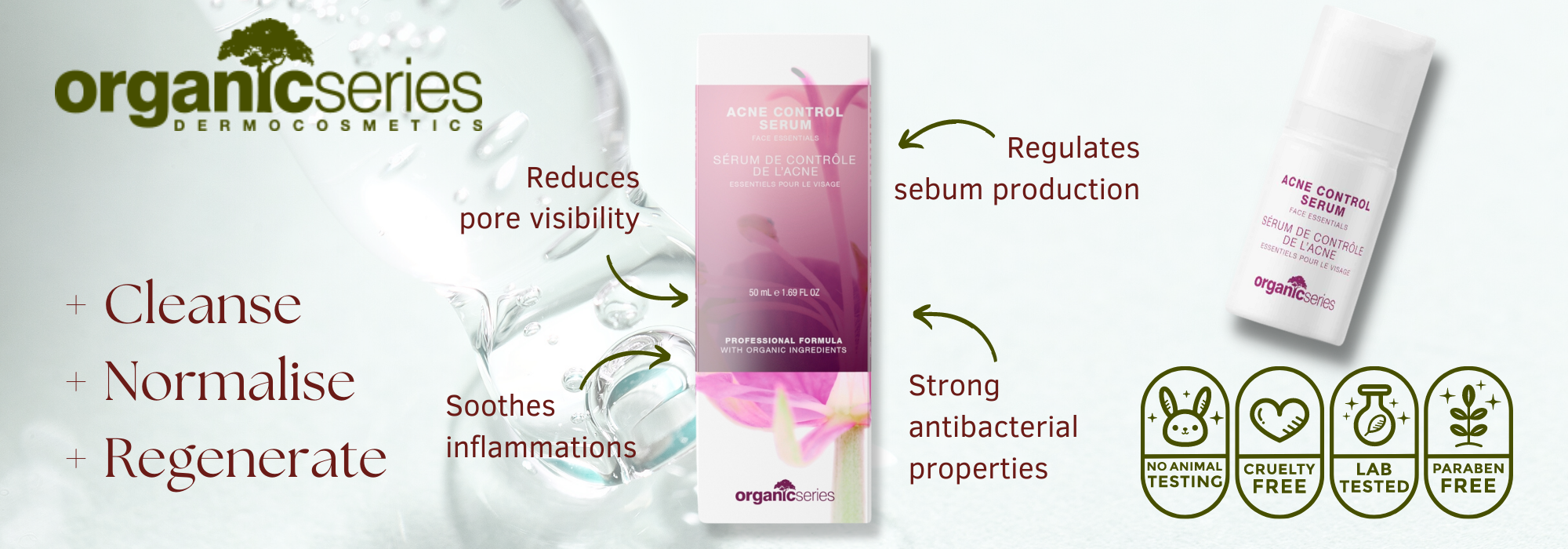
More inspiration
Follow Organic Series UK on instagram and facebook for more inspiration, expert tips and special discount codes!
Acne Control Skincare By Organic Series
-
Face Moisturiser with Sunscreen SPF40 | Moisturising Cream SPF High Protection By Organic Series | 15ml, 50ml
From £ 12.00Rated 4.67 out of 506 reviews -
-
Organic Acne Cream | Acne Control Cream By Organic Series | 15ml, 50ml, 200ml
From £ 12.00Rated 4.75 out of 504 reviews -
Organic Acne Serum | Acne Control Serum By Organic Series | 15ml, 50ml, 200ml
From £ 12.00Rated 4.75 out of 504 reviews -
Organic Facial Cleanser | Optimal Facial Cleanser By Organic Series | 50ml, 200ml
From £ 24.00Rated 5.00 out of 505 reviews -
Organic Vitamin C Serum 10% | By Organic Series | 15 ml, 50 ml, 200 ml
From £ 12.00Rated 5.00 out of 505 reviews

Maria
Cosmetic Chemist
Maria
All Author Posts

